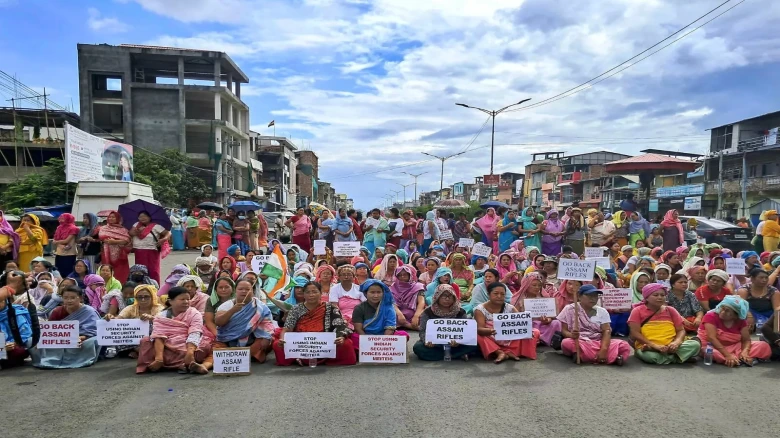For more than three months, many of the conflict's victims have sought refuge in the temporary aid camps.
Digital Desk: The Manipur government is working fast to complete the first batch of prefabricated homes so that the 3,000 families affected by the ethnic violence can leave the relief camps.
For more than three months, many of the conflict's victims have sought refuge in the temporary aid camps.
"The construction began from June 26 onward in five different places, and we are racing against time to complete the state government's initiative as soon as possible," Superintendent of Police P Brojendro of Manipur Police Housing Corporation Limited told PTI.
The official noted that 200 buildings near Sajiwa Jail in Imphal East district are nearing completion and that each house will have two rooms, a toilet, and communal kitchens. Ten houses will constitute a row.
The 200 prefabricated homes must be finished by August 20 and currently, 160 workers are employed.
"Materials used for constructing these houses include puff panel for walls, powder-coated aluminium frame for windows, and pre-painted CI sheets for roofs," he stated.
He claimed that blockades on the state's highways posed the biggest obstacle to getting the supplies into Manipur.
He said that employees were flown in to assemble the homes while local workers laid the foundation.
Prefabricated Housing to Provide for Relocated Families:
In the Thoubal district's Yaithibi Loukol neighbourhood and the Bishnupur district's Kwakta neighbourhood, prefabricated homes are being constructed for at least 400 families each.
In the Imphal West district in Sekmai and the Imphal East district in Sawombung, similar homes are also being constructed.
Another senior official stated, "The completion of the houses, particularly at Kwakta, faced setbacks due to the constant exchange of fire between unidentified people and state police."
He claimed that it was "extremely difficult to implement the project there due to the current law and order situation in the hill areas."
The internally displaced (IDPs), who will be celebrating Independence Day in their temporary shelters, believe moving to the newly built homes is a positive decision, but they long to go back to the places they had to evacuate when riots broke out.
One of the IDPs, Kishorjit P, who resides in a relief camp in the Imphal East area, declared, "I won't move into the prefabricated houses. Churachandpur, where we had to flee, is where I want to go back. Of course, adequate security measures must be taken. Since Churachandpur is where I was born and raised, I feel a strong emotional connection there.
However, Ranjita S, another IDP, stated that she was eager to move to the new residence.
"We cannot continue to reside in relief camps. We have to restart at some time. The first step to a new life will be these prefabricated homes, she added.
Notably, since the ethnic violence started in Manipur on May 3—following the organisation of a "Tribal Solidarity March" in the hill regions to protest the Meitei community's desire for Scheduled Tribe (ST) status—more than 160 people have died and hundreds have been injured.
The majority of Meiteis, who make up around 53% of Manipur's population, reside in the Imphal Valley. A little over 40% of the population are tribal people, mostly Nagas and Kukis, who live in the hill districts.

Leave A Comment